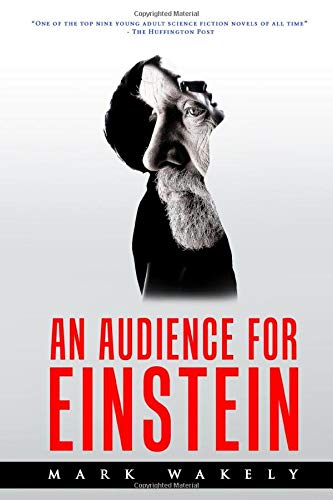An Audience for Einstein
By Mark Wakely
Professor Percival Marlowe is a brilliant, elderly astrophysicist who's dying, his greatest achievement still unfinished and now beyond his diminished means.
Doctor Carl Dorning, a neurosurgeon, finally discovers a secret method of transplanting memories from one person to another, thanks to Marlowe's millions.
Miguel Sanchez, a homeless boy, agrees to become the recipient of Marlowe's knowledge and personality in this unorthodox experiment, enticed by Dorning's promises of intelligence, wealth and respect but dangerously unaware that his own identity will be lost forever.
What results is a seesaw battle for control of Miguel's body as Marlowe learns to his dismay what his lifetime of arrogance and conceit has earned him. And when Marlowe stumbles upon the shocking procedure Dorning used in desperation to succeed, the professor does what he must to defeat Dorning and redeem himself at last.
This discussion guide was shared and sponsored in partnership with Dartfrog Books.
Book club questions for An Audience for Einstein by Mark Wakely
Use these discussion questions to guide your next book club meeting.
If memory transfer becomes a reality, how likely is it that it would be legal?
With all the advances in medical science, are we beginning to alter what it means to be human?
If we are altering what it means to be human, is that good or bad?
An Audience for Einstein delves into the question “Just because we've learned how to do it, should we?” How do you view this ethical debate?
Following the theme of the book, would memory transplantation be morally acceptable if by doing it we could retain a great mind which might lead to solutions for some of mankind’s biggest problems?
If not outlawed, should medical breakthroughs like memory transfer be strictly regulated and if so, by whom?
Would legal restrictions discourage important medical research that could benefit mankind?
If memory transfer were possible, should we sacrifice "undesirable" people in order to save those who could continue to make major contributions for all mankind?
If we do decide to save those who can make notable contributions to society, who exactly are the "undesirables" who could be sacrificed?
If we sacrificed those we declared "undesirable" in order to save those deemed worthy, would that make us better or worse than those societies that didn't allow such a procedure?
If medical science could eliminate all our imperfections both big and small, would it be good or bad that we were more alike, and what might be gained or lost?
What would a "perfect" human being look like, and how would he or she behave?
An Audience for Einstein Book Club Questions PDF
Click here for a printable PDF of the An Audience for Einstein discussion questions

